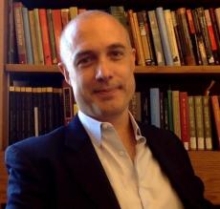Spafford Wins NEH Fellowship to Study Japan’s Warrior Houses

David Spafford, assistant professor of East Asian Languages and Civilizations, has been awarded a fellowship from the National Endowment for the Humanities (NEH) to study the corporate warrior house in Japan from 1450 to 1650. He is researching the social functions of the warrior house, exploring in particular practices and ideas about family identity, survival, and legacy.
An independent federal agency, the NEH is one of the largest funders of humanities programs in the United States, awarding grants for top-rated proposals examined by panels of independent, external reviewers. Past fellowships have resulted in Pulitzer Prize-winning books, the Ken Burns documentary on the Civil War, and about 56,000 events annually.
Spafford’s research interests include the history of late medieval and early modern Japan. His book A Sense of Place: The Political Landscape in Late Medieval Japan examines the vast Kantō region as a source of cultural identity and an object of familial attachment during the political and military turmoil of the late fifteenth and early sixteenth centuries.
His papers include “Emperor and Shogun, Pope and King: The Development of Japan’s Warrior Aristocracy,” in the Bulletin of the Detroit Institute of Arts and “Warriors Are Tools: Commentary on ‘Epic Hero as Cyborg,’” in Fragments: Interdisciplinary Approaches to the Study of Medieval and Ancient Pasts 2. Spafford received his Ph.D. from University of California, Berkeley, and came to Penn in 2011.





